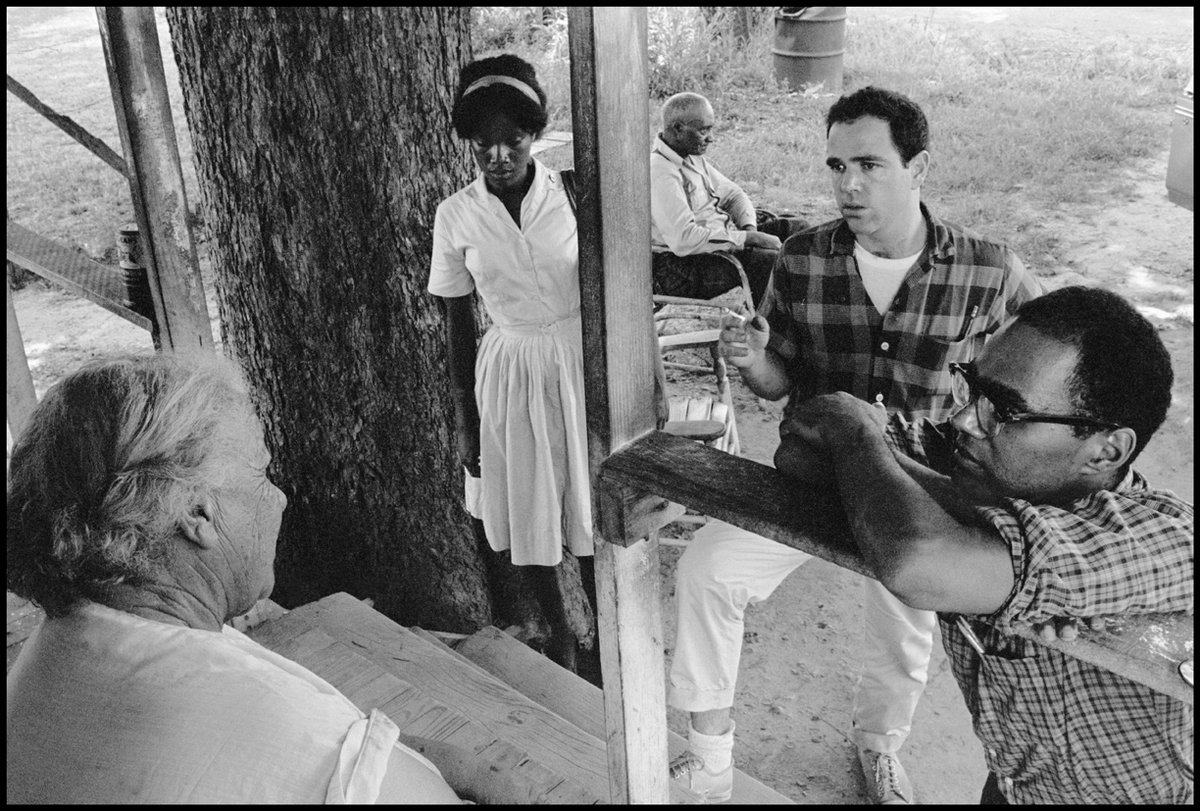
[Bob Moses, Memo to Parents of Mississippi Summer Volunteers (late June 1964)]
***
"TO: PARENTS OF ALL MISSISSIPPI SUMMER VOLUNTEERS...
Immediate action is needed by all those concerned with the safety of the Mississippi Summer Volunteers."
#BobMoses #FreedomSummer
***
"TO: PARENTS OF ALL MISSISSIPPI SUMMER VOLUNTEERS...
Immediate action is needed by all those concerned with the safety of the Mississippi Summer Volunteers."
#BobMoses #FreedomSummer

"Unless the President and the Attorney General can be convinced of the need for Federal protection of civil rights workers, the events of Philadelphia are almost certain to be repeated over and over again in the next two months."
"We are asking all parents to use their influence in the coming week to pressure President Johnson and Attorney General Kennedy into a commitment to protect workers before violence occurs, instead of waiting until the worst has happened before they offer their help."
"The mood of Mississippi today is one of mounting tension. Acts of violence or near violence are increasing."
"FBI agents in Mississippi are always white, generally Southern, and usually from Mississippi itself. Like local law enforcement officers, these agents often serve to obstruct, rather than aid, the administration of justice in civil rights cases." 

"It is difficult to stress sufficiently the urgency of our request Without immediate action, the lives of civil rights workers will be further and senselessly endangered; and we will have failed in one of our primary goals: ...
... to offer some semblance of protection to the Negroes of Mississippi, who have suffered for decades from the kind of incident which occurred in Philadelphia."
"For instance, there have been five 'unsolved' murders of Negroes in the southwest part of the state since the beginning of the year. These murders received no national publicity until the beginning of the Mississippi Summer Project."
"Only our presence in Mississippi ensures the continued concern of the nation for the Negroes of that state, and the chance that the Federal Government will move effectively to provide protection for their lives and civil rights." 

"For this reason, in spite of the danger involved, we are fully committed to continuing the Mississippi Summer Project."
--Bob Moses, Memo to Parents of Mississippi Summer Volunteers (late June 1964)
#BobMoses #FreedomSummer
--Bob Moses, Memo to Parents of Mississippi Summer Volunteers (late June 1964)
#BobMoses #FreedomSummer

• • •
Missing some Tweet in this thread? You can try to
force a refresh



